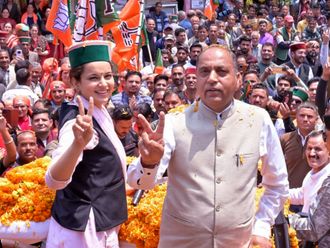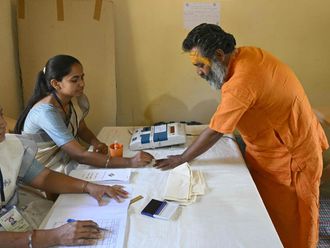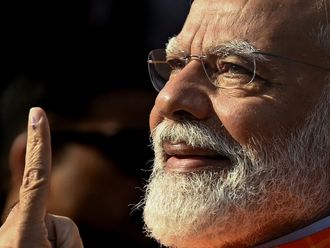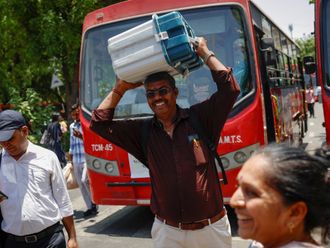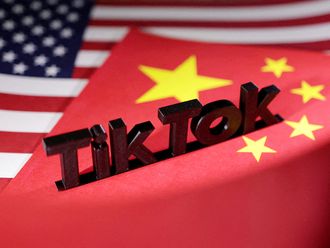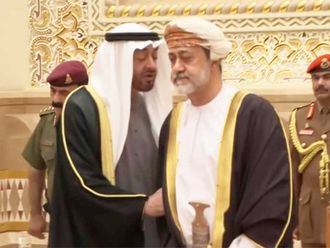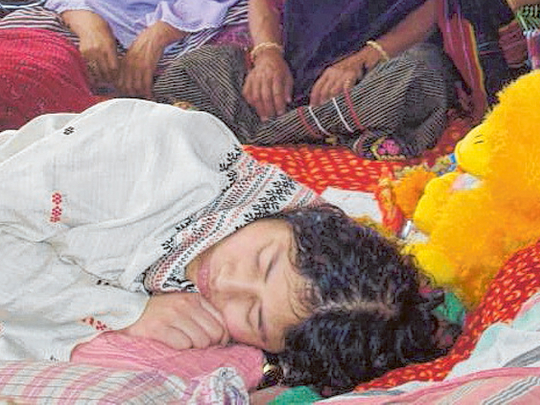
Guwahati: A country that often boasts of its robust electoral democracy is alienating a large section of its own people though a colonial law.
Described by many as draconian, India’s Armed Forces (Special Powers) Act, 1958, or AFSPA, confers special powers to the Indian forces to respond at will in “disturbed areas” to maintain law and order — which fundamentally contradicts the constitution — raising a difficult question of whether this is “democratisation” through the gun barrel.
Modelled on the Armed Forces (Special Powers) Ordinance introduced by the British government in 1942 to suppress the “Quit India Movement”, the law is rapidly eroding that which it is supposed to promote — the right to freedom — with ominous implications for the people in the North Eastern states and Jammu & Kashmir (J & K).
Under AFSPA, in a ‘disturbed area’, central forces are free to use force, even causing death to perpetrators as per the law.
A military officer can tackle local issues, fight social unrest or fire upon an unlawful assembly of five or more people if the need arises or even for illegal possession of firearms.
No arrest or search warrants are required for such operations as, under the law.
AFSPA provides full legal immunity to troops operating in those designated areas.
The enforcement of the law is equivalent to declaration of emergency, which is presently active in the states of Arunachal Pradesh, Assam, Manipur, Meghalaya, Mizoram, Nagaland and Tripura. AFSPA was further amended in 1972, to include the Kashmir Valley, which violates the provisions of the Constitution of India and International Covenant on Civil and Political Rights, to which the country is a signatory.
The Act has caused mass protests in various states, especially by human rights groups, including the North East Students’ Organisation.
On September 10, 2010, a protest against the Act in Kashmir turned violent. In Manipur, Irom Sharmila Chanu has been on a hunger strike since November 2, 2000 demanding the repealing of the Act from the state.
Various committees — including the Jeevan Reddy Commission, a five-member body under former Supreme Court judge Justice B.P. Jeevan Reddy — have been set up to review if the Act needs to be amended or repealed. In a 147-page report in June 2005, the Jeevan committee recommended the repealing of the Act.
More recently, the Justice Santosh Hegde Commission, appointed by the Supreme Court, suggested its critical review.
Over the years several others have pointed to the existence of the Indian Penal Code, the Code of Criminal Procedure, the Unlawful Activities (Prevention) Act, the National Security Act, specific constitutional provisions and several laws enacted by various state assemblies, as providing the strongest application of the law and order machinery, and intervention by the Armed Forces, should this be required — to minimise conflict and maintain peace.
However, the government has not agreed with the recommendations and said that, unless the army agrees, the civilian government is helpless.
It did not even publish or table the reports in the parliament.
Supporters of the Act argue that extraordinary conditions demand extraordinary measures.
“No one denies that AFSPA gives extraordinary powers to the military, even on issues of day-to-day policing. But, it also has to be understood that there’s no other simple way to fight the insurgency. When the enemy penetrates within the civilian population, it is he who has curbed the liberty of the people and not the security forces, who are in fact trying to ensure the right to life and dignity of the people. AFSPA cannot be withdrawn at the whim and fancy of individuals,” said a retired army officer, who served in the area.
Critics argue that AFSPA has never stopped rebellion. It has instead bred resentment against the central government by defending atrocities and entrenching prejudices, thereby creating an unhealthy atmosphere which results into people’s protest against their own country.
“The entire North East is flooded with guns from various countries. Americans may not have heard of Manipur, but their guns are available there. Also, insurgent groups have used the excesses of the army to lure in more people towards their cause,” said Binalakshmi Neparam, founder of the Manipur Gun Survivors Network and Secretary General of Control Arms Foundation of India.
During every parliamentary election, talk of repealing the law resurfaces, and politicians craftily lob the ball into the army’s court while portraying the civilian government as handicapped over the issue.
“The Army has taken a strong stand against any dilution of the AFSPA. We can’t move forward because there is no consensus. How does the government move forward to make the AFSPA a more humanitarian law?” Union Finance Minister P. Chidambaram said, delivering a lecture on “India’s National Security — Challenges”.
Congress party vice-president Rahul Gandhi says he wants further discussion and devolution of power to solve the problem. He however has not committed to any timeline.
The party’s manifesto is silent on issue, but offered the fig leaf of development.
“Problems like insurgency can only be solved though discussion and not force. Laws cannot win the heart of the people and chart their own destiny,” Rahul Gandhi said at an election rally in the North East.
The Communist Party of India — Marxist has opposed a repeal of the law in North East, but wants to amend certain section to make it “humane”.
“We do not demand complete repeal of the act, but demand deletion of some portions, which make it draconian. We want a humane face to be given to the act so that people in the region are not unnecessarily harassed by security forces,” party central committee member and state unit secretary Bijan Dhar said.
The Bharatiya Janata Party (BJP) is the only national party that has committed itself to repealing the law in the North East, but not in Kashmir — where it sees the insurgency as a proxy war against India from external enemies.
“It will not be an easy decision for any government, but a certain political will and statesmanship is required from the government to win over the hearts of the people, or else, it will lead to further estrangement. allowing anti-Indian forces to gain ground,” Professor Sanjoy Hazarika, Director, Centre for North East Studies of Delhi-based Jamia Millia Islamia University said.
“There is no harm in withdrawing it in phases or even in an experimental way for a given time frame. The government of the day is always in a position to reinforce it if necessary,” said Hazarika.


